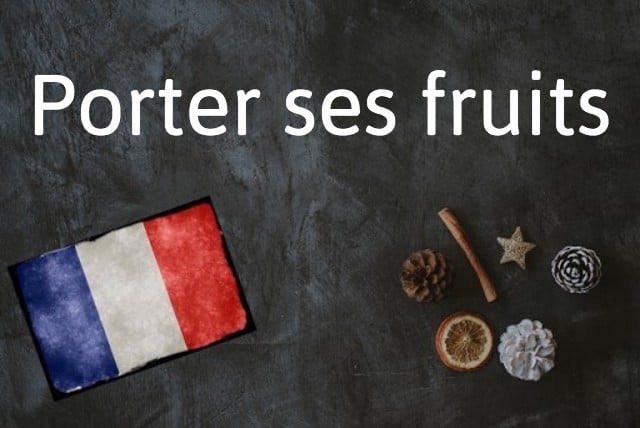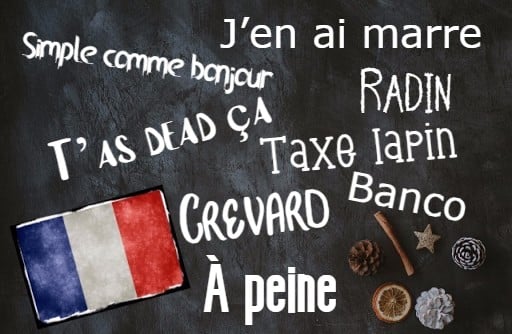Why do I need to know porter ses fruits?
Because it’s a common expression that doesn’t translate literally.
What does it mean?
Porter ses fruits directly translates as ‘wear one’s fruits’, which sounds like an odd thing to do – unless, of course, you are channelling former Paris resident Josephine Baker wearing skirts made out of bananas.
I am surprised that there aren't a lot of documentaries about Josephine Baker, iconic 1920s Jazz Age star, civil rights activist, banana-skirt wearing French Resistance agent and freemason. pic.twitter.com/2xtD5kMntr
— exit, pursued by a pear 🍐 (@DavidTibet) September 29, 2020
However, the expression is a metaphor, signifying that something is ‘paying off’, ‘have an effect’ or ‘have an impact’.
If something porte ses fruits, it means that it’s working and producing the desired results, here using the secondary meaning of the verb porter – to bear or to carry.
The exact meaning depends on the context, but often the English equivalent would be ‘bearing fruit’.
You would think it should be porter des fruits, as in ‘bear fruit’, and not ses fruits, as in ‘its fruits’, but the correct version is indeed wearing ‘one’s fruit’, ‘its fruits’ or ‘their fruit’ (leurs fruits) when plural.
Les fruits (the fruit) in question can be anything from economic growth to increased support for a reform, to fewer people smoking following an anti-smoking campaign.
Whatever the initiative, strategy, reform or measure aimed to do: Ça porte ses fruits ! – It’s paying off!
French commentators have used it about countries that are now reopening, such as the UK, US and Israel, as a manner of saying that their anti-Covid vaccination campaigns are ‘paying off’.
The tweet below says that “despite its flaws, the vaccination campaign is paying off in Europe, where the situation is improving – nearly – everywhere.”
Malgré ses manques, la campagne de vaccination porte ses fruits au niveau européen, où la situation s'améliore – presque – partout.
Analyse complète à lire sur @LesCrises https://t.co/CXpQ4wXfFy pic.twitter.com/wnx6AAZbGq
— Olivier Berruyer (@OBerruyer) April 13, 2021
Use it like this
On espère que le confinement va porter ses fruits dans quelques semaines et qu’on pourra enfin rouvrir nos cafés. – We hope that the lockdown will bear fruit in a few weeks and that we can finally reopen our cafés.
Le travail que vous avez fait porte ses fruits ! Nous avons eu d’excellents retours de la part de nos clients. – The work you have done is paying off! We have had excellent feedback from our customers.
Attendons que les mesures portent leurs fruits. Il ne faut pas prendre de décision prématuré. – Let’s wait for the measures to have an effect. We must not make premature decisions.



 Please whitelist us to continue reading.
Please whitelist us to continue reading.
exit, pursued by a pear Pear, @DavidTibet:
“I am surprised that there aren’t a lot of documentaries about Josephine Baker”
Vous ne pouvez pas être sérieux!
Youtube has dozens and dozens. Not to mention JB’s vast appearances in film, soundtracks, music halls, and so forth. Of course, more would be better! (Angela Bassett where are you?) I like La Piscine Joséphine Baker, moored on the Siene, Paris 13.
Trivia: Josephine Baker is the only American-born person to receive full French military honors at her Roman Catholic high mass funeral held at L’Église de la Madeleine. A massive procession followed. Baker is interred at Monaco’s Cimetière de Monaco.